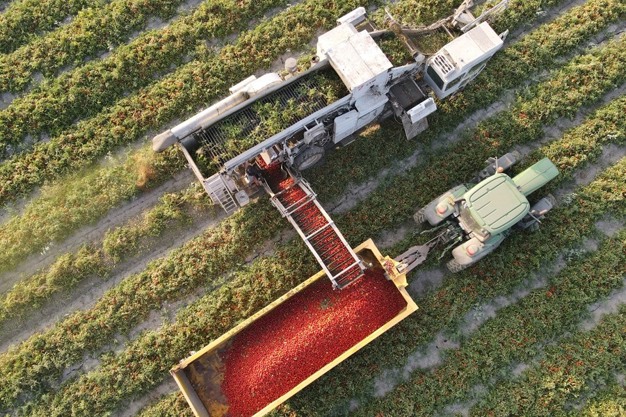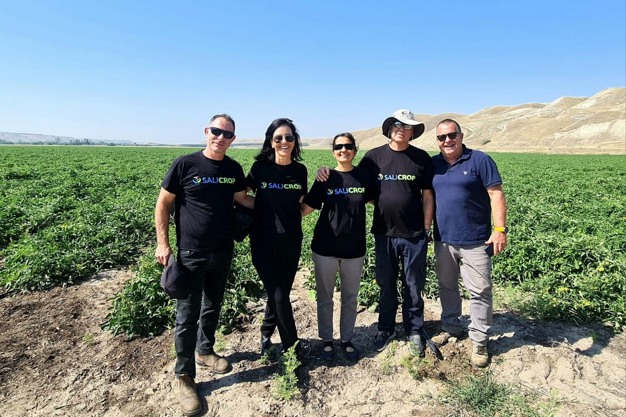Extreme weather events—heatwaves, droughts, extreme cold snaps—pose significant threats to agriculture, contributing to the phenomenon of desertification. Globally, fertile lands are increasingly being degraded, losing the ability to sustain life and grow food. AgriTech start-up SaliCrop, Ltd., has pioneered a seed treatment to transform arid terrain into flourishing landscapes to growing food.

Tomato harvesting - photo credits: Guy Shery
Leveraging its expertise in desert technology, the company developed a novel, non-GMO approach to bolster seeds’ resilience to abiotic stresses brought on by extreme climate challenges. SaliCrop’s solution can help boost crop cultivation in arid regions, raising yields and elevating the value to marginal lands, turning them into arable stretches more fit for growing food. The result is greater food security for the future.
SaliCrop’s benefits already are taking root in Spain’s tomato industry. Saline soil and heat stress are considered the worst abiotic stressors. Dry soil with excessive salt content hinders the germination and growth potential of numerous crops. Soil salinity is largely attributed to rising sea levels which leads to seawater intrusion in coastal areas and the weathering of rock. This is exacerbated by irrigation with brackish water which for many farmers is unavoidable.

The SaliCrop team.
Sowing the seeds of abundance
SaliCrop’s proprietary seed enhancement technology is the brainchild of Ṛcā Godbole, Ph.D., co-founder and CSO of SaliCrop. Godbole is a plant biologist who hails from a dynasty of agronomists. She dedicated time assisting smallholder farmers in coastal regions of Mumbai contending with substantial soil salinity setbacks in efforts to grow crops such as rice and beetroot. Godbole and Devir, a mechanical agronomist who established the first Arab-Israeli life science technology greenhouse in Nazareth, Israel, began conducting trials in Israel growing wheat and vegetables using saltwater irrigation in a closed facility.
SaliCrop’s has developed hundreds of seed enhancement protocols designed to improve plant resilience to the impacts of climate change by intentionally exposing the seeds to controlled abiotic stressors. This process harnesses the innate stress-response mechanisms helping them thrive even during periods of intense heat, prolonged dry spells, and low water.
"Under SaliCrop's treatment, plants not only thrive in poor quality, highly saline soil through enhanced nutrient absorption and improved root structures, but they also exhibit increased vigor and superior germination rates,” affirms Carmit Oron, CEO of SaliCrop. “This innovation turns marginal lands, previously considered barren, into fertile grounds capable of abundant food production. As climate change intensifies, farmers globally are in urgent need of sustainable solutions to adapt and succeed. SaliCrop is at the forefront, with leading agricultural players already integrating our technology,” Oron adds.
Going commercial
While the company is progressing with field trials across Europe, Africa, and India, focusing on a open field variety of crops including onions, broccoli, chili rice, and more. SaliCrop is already at commercial stages in Israel, actively selling treated tomato seeds across 700 hectares.
For more information:
Carmit Oron
SaliCrop Ltd.
Email: contact@salicrop.com
www.salicrop.com
